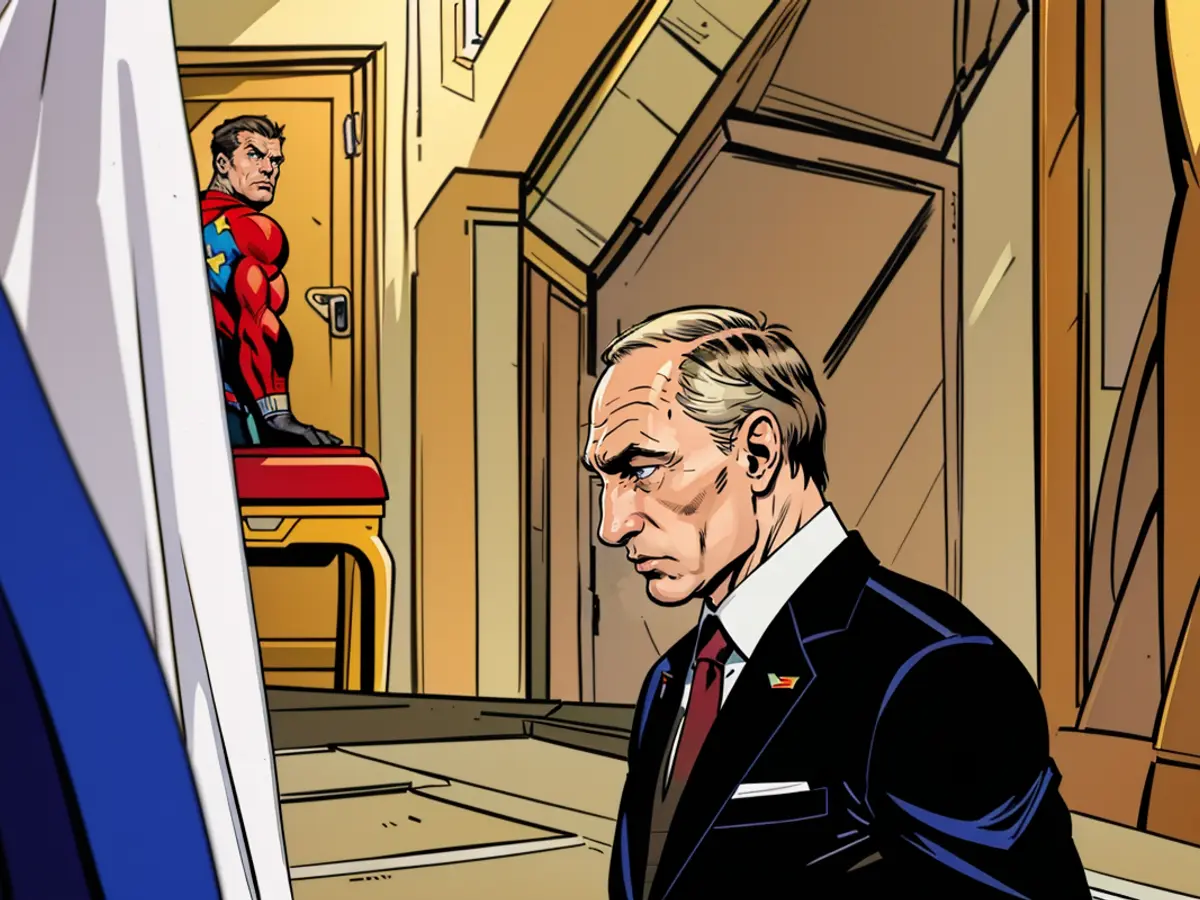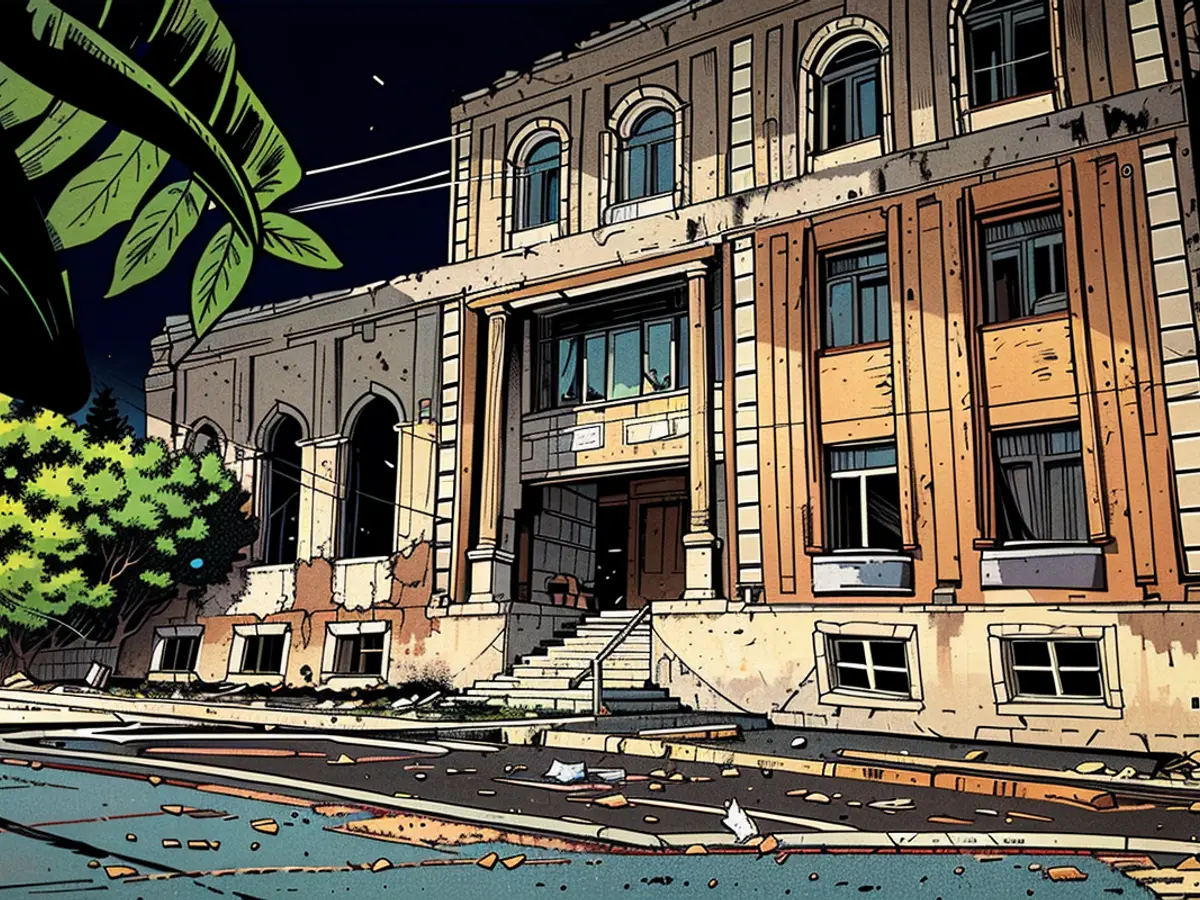In a span of three months, Russia has endured two significant terrorist attacks. Here's what has transpired.
The incident is the second occurrence in the past three months, following over 130 casualties at a concert hall adjacent to Moscow, attributed to ISIS-K in March, and poses a challenge to President Vladimir Putin's self-proclaimed image as a leader ensuring stability across Russia's vast and turbulent territory.
This surge in violence coincides with reviving ethnic disputes, amplified by the requirement to strengthen Russia's military ranks during Putin's war against Ukraine and ongoing clashes in the Middle East.
Here's a brief rundown of the events in Dagestan.
What transpired in Dagestan?
Unknown assailants initiated shootings at multiple places of worship and a police checkpoint in two cities of Muslim-majority Dagestan, resulting in the deaths of at least 15 law enforcement officers, four civilians including a priest on Sunday.
Two synagogues – one in Derbent and another in Makhachkala – were targeted, according to a statement from the Russian Jewish Congress (RJC). In Derbent, the attackers used Molotov cocktails to set the synagogue ablaze while law enforcement personnel were killed during the attack. In Makhachkala, a security guard at Svyato-Uspenskiy Sobor church was killed in a shootout, and 19 people sought refuge inside the premises amid the attack. An attack was also reported at a police checkpoint in Makhachkala.
No group claimed responsibility for the attacks initially, but law enforcement told TASS that the perpetrators were followers of an international terrorist organization.
The Investigative Directorate of the Investigative Committee of Russia for the Republic of Dagestan launched a terror investigation into the attacks under the Criminal Code of the Russian Federation.
Where is Dagestan located?
Dagestan is situated in Russia's Caucasus region on the western shores of the Caspian Sea.
The region is a microcosm of Russia's diversity, hosting over 30 ethnic groups with unique languages, and is a predominantly Muslim republic that has historically supported a range of Islamic religious practices.
Although Judaism is one of Dagestan's long-standing religions, practiced by Mountain Jew communities, whose language is a form of Persian, the population has been rapidly decreasing due to emigration.
The Caucasus region has long harbored resentment towards Moscow's rule during Tsarist, Soviet, and post-Soviet times. After the fall of the Soviet Union, insurgents in neighboring Chechnya waged two separatist wars for independence – which Russia labeled as terrorism and responded with brutal tactics, largely devastating the capital Grozny. Putin then appointed warlord Ramzan Kadyrov as the ruler of Chechnya, who has since ruled with an iron fist.
In Dagestan, Russian security forces fought an Islamist insurgency in the mountainous region during the 2000s, which stemmed from neighboring Chechnya, but attacks have become scarce in recent years.
Contemporary events have once again sparked unease in the historically restless region.
Ethnic and religious tensions in Russia
Over 200 ethnic minorities reside in Russia, scattered across 11 time zones and inhabiting approximately 144 million people.
Some ethnic minority groups have been affected adversely by Putin's war in Ukraine, with ethnic minorities disproportionately mobilized to experience the horrors of Moscow's human wave tactics.
Protests arose in multiple ethnic minority regions in 2022 against Putin's mobilization orders, including in Dagestan. In one video geolocated from the time, women in the capital Makhachkala could be heard pleading with police outside a theater, exclaiming, "Why are you taking our children? Who attacked who? It's Russia that attacked Ukraine."
Israel's conflict with Hamas following the brutal October 7 attacks has escalated tensions worldwide, fueled by daily images of destruction in Gaza, including in the Caucasus.
Putin has attempted a delicate international balancing act, presenting himself as a potential mediator and advocating for restraint on both sides – a position that has garnered praise from Hamas.
However, this confidence was shaken later in the month when anti-Semitic rioters stormed Dagestan's Makhachkala Uytash Airport upon the arrival of a flight from Israel.
At least 20 people were injured, and 60 people were arrested during the chaotic melee, according to local authorities. Numerous videos on social media showed a chaotic crowd inside the airport and on the runway, some waving the Palestinian flag, others forcing their way through closed doors in the international terminal.
Putin is reportedly "very, very concerned" about interreligious violence, as stated by former CNN Moscow bureau chief Jill Dougherty in reaction to Sunday's attacks in Dagestan.
Russia maintains a complex network of relationships in the Middle East: Putin supports Syrian President Bashar al-Assad (an enemy of Israel); he relies on Iran (another enemy of Israel) for a stockpile of drones to attack Ukraine; and he has a friendly rapport with Saudi Crown Prince Mohammed bin Salman, another influential figure in the region.
He has also maintained cordial working relationships with Israeli counterparts, although his relationship with Israeli Prime Minister Benjamin Netanyahu has cooled.
ISIS-K assault on a music venue
The coordinated attacks in Dagestan occurred just weeks after Russia suffered one of its worst terror attacks in decades.
In March, a horrific incident took place as militants breached a well-liked concert venue complex on the outskirts of Moscow, resulting in over 130 fatalities.
Terror group ISIS-K admitted to orchestrating the carnage, and authorities indicted four suspects from the ex-Soviet nation of Tajikistan on terrorism charges.
This shocking act of terror occured mere days after Putin secured a manipulated election, strengthening his hold on the country he's ruled since the start of the new millennium.
For a leader who consistently assures Russians of safety and stability, this massive attack on Russian soil was another hammer blow.
The violence stirred strong emotions, which, paired with the chilling videos, ignited a surge of prejudice against Central Asian migrant workers in general.
Migrants from the Central Asian states of the former Soviet Union – Tajikistan, Uzbekistan, Kyrgyzstan, Turkmenistan, and Kazakhstan – have historically provided an essential source of cheap labor in Russia.
Following the March attack, Putin called for Russia to remain unified.
“We should never forget that we're a diverse, multi-faith country. We must always treat our fellow countrymen, believers of various faiths, with respect – Muslims, Jews, everyone, just as we always do,” he stated.
However, the attack on Dagestan on a Sunday demonstrates that deep divides persist in Russia's border regions.
Contributions to this report were made by CNN's Darya Tarasova, Jen Deaton, Mariya Knight, Nathan Hodge, and Sebastian Shukla.

Read also:
The attacks in Dagestan have raised concerns beyond Russia, as Europe and the international community watch closely due to its location within Europe's geopolitical sphere.
Moreover, these incidents underscore the challenges Russia faces in maintaining peace and unity amidst its diverse population, particularly in regions like Dagestan, which is a predominantly Muslim republic located in Europe's Caucasus region.







